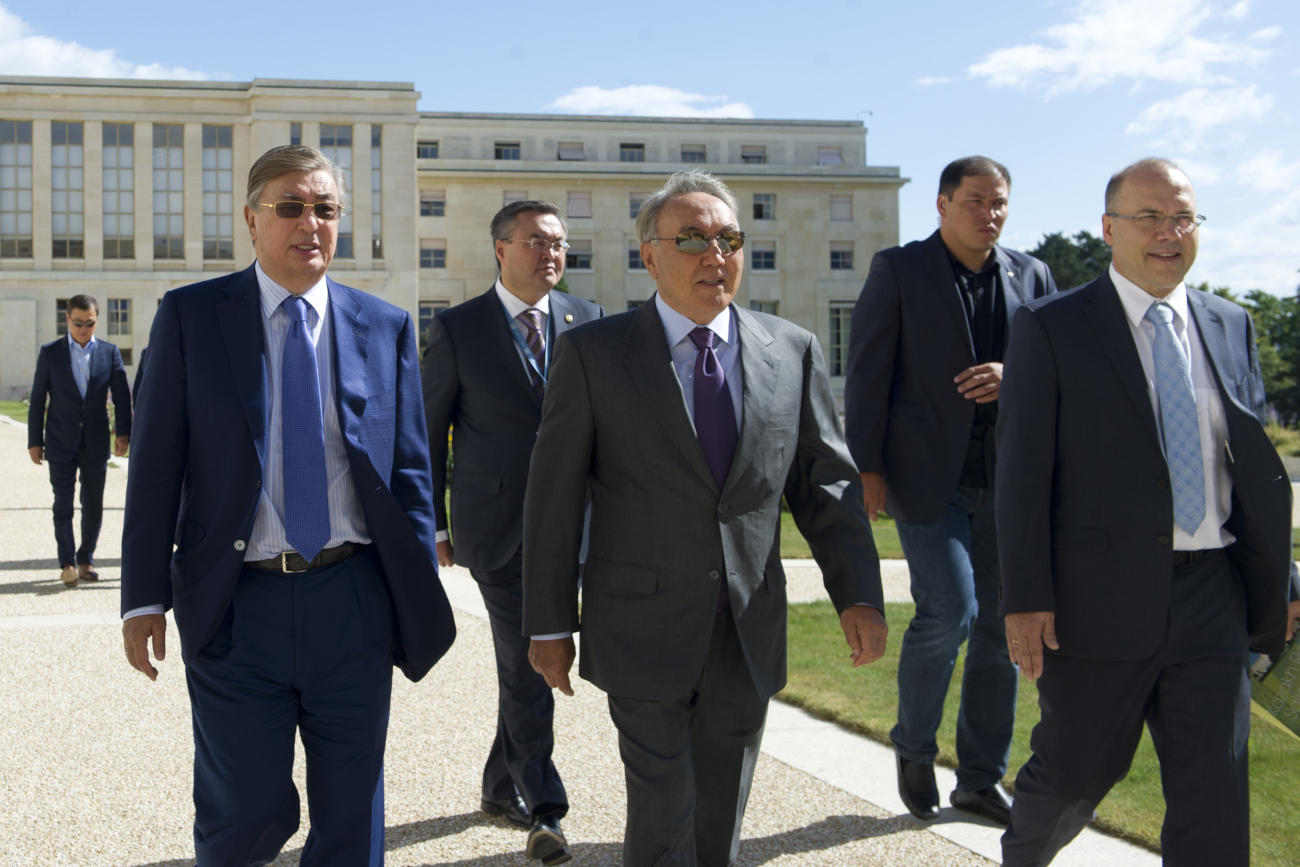Dr Abdul Rahim Abdel Wahed:
On Tuesday, the Kazakh President, Nursultan Nazarbayev,in a televised address announced that he had taken a “not easy” decision to give up his presidential powers in a move that he said is intended to help a new generation of leaders.
His announcement was received with shock and surprise to many politicians inside and outside Kazakhstan, and it immediately dominated various local, regional and international media.
Nazarbayev is the only President that Kazakhstan has known since it became an independent state following the collapse of the Soviet Union in 1991.
For three decades, the 78-year-old has led to the transformation of his country that sits strategically along a major trade corridor between China and Russia. Kazakhstan is also has vast reserves of oil and minerals.
Despite the astonishment and confusion that hit many after hearing the news of the resignation of Nazarbayev, there has been speculation about his resignation for a period of time.
It gained traction after a formal request was made to the Constitutional Court to clarify on the process of the president’s resignation.
The question now is, “after Nazarbayev’s resignation, will the next leader of Kazakhstan fit into Nazarbayev’s shoes?”
Nazarbayev’s presidential powers are to be transferred to Kassym-Jomart Tokayev, chairman of the Kazakh Senate, until the expiration of the current electoral term in April 2020.
It seems that Nazarbayev was not only willing to make radical changes as happened on Tuesday and to appoint a possible replacement to take over the administration of the state.
The fact is that Kazakh history will continue to remember Nazarbayev’s achievements and thus put him in the ranks of great Kazakh historical names and personalities who contributed not only to the rise of Kazakhstan as a nation but to the advancement of the Kazakhs themselves, their history and their heritage over the past decades.
Nazarbayev’s supporters believe he maintained inter-ethnic peace and stability during the 1990s reform period and is credited with the country’s stunning economic growth in the first decade of the new millennium.
His resignation comes amid growing social resentment and discontent over the economic and social situation in his country, which is still recovering from the fallout of oil prices in 2014, and weeks after Nazarbayev dismissed the government.
Nazarbayev, born in 1940, is the only independent president known to Kazakhstan, and many see him as the nation’s leader and founder of their state, a popular neighborhood, despite opposition declarations that there were no free and fair elections during Nazarbayev’s years.
He was reelected against largely symbolic opponents in 1999, 2005, 2011 and 2015.
We see that if Nazarbayev formally left power and rule, it is absolutely impossible, based on our knowledge of the reality of political, historical and official life in Kazakhstan.
We see that the resigning president will remain the strongest instrument in defining the paths and policies of many strategic issues in Kazakhstan internally and externally, and will have a prominent role in the political decision-making in Kazaktasan, for many reasons, many of which are prominent, that he is the founding president and leader of the nation as he sees and describes his people.
Nazarbayev is still very popular, especially after his economic, political, social and developmental achievements. This popularity is growing after he succeeded in eliminating elements of rebellion and subversion in his country in 2011 in western Kazakhstan, which was also suffering from poverty and neglect.
Kazakhstan has long sought to establish itself as the land of democracy in the heart of Eurasia, but in one crucial aspect it is no different from many other former Soviet states: the first phase of the dismantling of state power after the collapse of the Soviet Union was the concentration of wealth in the hands of a very small group of well- Who see a good reason for their participation, where most view any reform as a challenge to their well-being, which Nazarbayev has overcome over recent years.
In the years of his long reign, Nazarbayev’s experience has served as a future political and philosophical theory and a lesson for all developing countries in the fields of economy, human development, education, technological progress and health.
This is a new theory for all decision-makers at the stage of building a modern state which led us to the establishment of academic work detailing these through a book entitled; “The theory of Nazarbayev”
In this book, we discussed the theory of Nazarbayevism with all its details, dimensions, effects, rules and achievements on the ground by presenting and reviewing the political thought and the most important intellectual contributions of the Kazakh president, especially after the collapse of the Soviet Union.
The Kazakh president used philosophy, thought, renaissance, enlightenment, modernity, development, and scientific, industrial and technological revolution. He established a state with solid institutions and culture, and made it a global model of social, cultural, scientific, service, health and economic development.
Kazakhstan has achieved what can be called the “Kazakh development miracle” and the transformation from a developing country to the ranks of developed countries by 2050, while its president still dreams and dreams, and his country grows whenever he achieves one of his dreams. A fact referred to as boys, especially since it combines originality and modernity in a unique and meticulous manner, until Kazakhstan became one of the fastest growing countries in the 20th century and a symbol of development and progress.
Author is Chairman of Media Hub International


